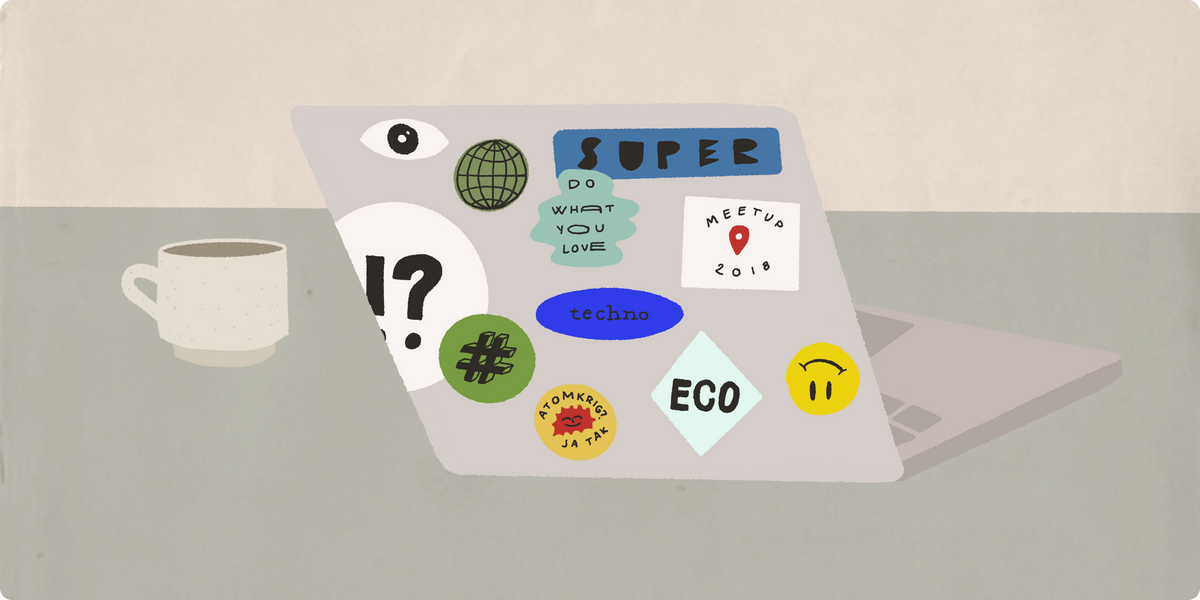What Is a Brand?
On Capitalism’s Anthropomorphic Manifestations

What are brands? Why do we feel such attachment and belonging to them? Are they purely a product of capitalism and market? Or would they have existed outside this context?
Brands are like a new entity in our society. A new type of individual, an un-individualized actor. Brands are basically an embodiment of values without a body. A personality with no person. They are however really close to a person in how we interact with them. They exhibit behaviours, they take action and share views and beliefs we get attached to, almost exactly like with other people.
However they are shapeless, matter-less. They take shape in advertising and messaging and other communications, but brands are not the products or services they sell. That's like how the artist and the art they produce are two separate entities. They are still very closely linked by the philosophy in the mind of the artist, but the artist can exist outside of the art. The brand can exist outside of their products or services. But can the brand really exist ouside of the market, outside of the industry it's taking a part in? What's its role? What's its deeper meaning? What are brands a metaphor to?
Brands are more than a company, a business. And they aren't a prerequisite either. Some companies don't have brands and still participate in the market. But brands level-up the participation of a company in society as they define their chosen identity and actively communicate it. What does a brand do? Brands take a stance. Brands have opinions. Brands guide a company's ethical decisions via a set of principles and values. They add a human touch to the entity of a company, they are in some ways its anthropomorphic manifestation.
Why do brands matter? Brands seem to have become community builders. Niche enablers. More so recently with sustainability-focused companies, or any that show a glimpse of care about the climate crisis. Brands gather like-minded folks, but unfortunately uniquely under the umbrella of consumption. Because let's remember, a company doesn't need a brand, but brands can only come from a company. What ties a brand's community members together is largely purchase.
Beyond that, they're a shared language of common symbols. Since brands are out there in the limelight, shouting their message, constantly staying active in the public eye, they become these messengers that we globally learn to recognize for their message. As messengers, they transcend borders and language barriers. They're also an icebreaker in social contexts. It's easier to approach someone in a coffeeshop if they have a sticker of your local climbing gym on their laptop.
Brands become extensions of their consumer's identities. We wear them, use them, show them off like beacons of self-expression. "If you know what this symbol stands for, and notice my intentional display of it, then you should now know that to be true about me". It's about identity, who we want to be, or rather who we want to appear as. Defining ourselves by the products and services we choose to buy. Since so much of our lives have to go through some sort of financial transaction, inevitably they become defining traits of ourselves. They represent choice, typically over other ones. And the act of choosing is a vote, a stance taken.
But then again, you can follow brands on social media or subscribe to their communications without ever purchasing anything from them. You can attend events organized by brands, you can advocate for a brand, recommend it, show passive support for it witout actively "voting" for it with your money.
So in that sense, brands can exist outside of the market, but not exclusively. The community that ensues makes brands able to exist outside the market, but they still have to be born out of capitalism. Without it, they are just that —communities. Brands might just be the capitalistic version of community. Like capital-driven micro-societies which we agree to adhere to.



